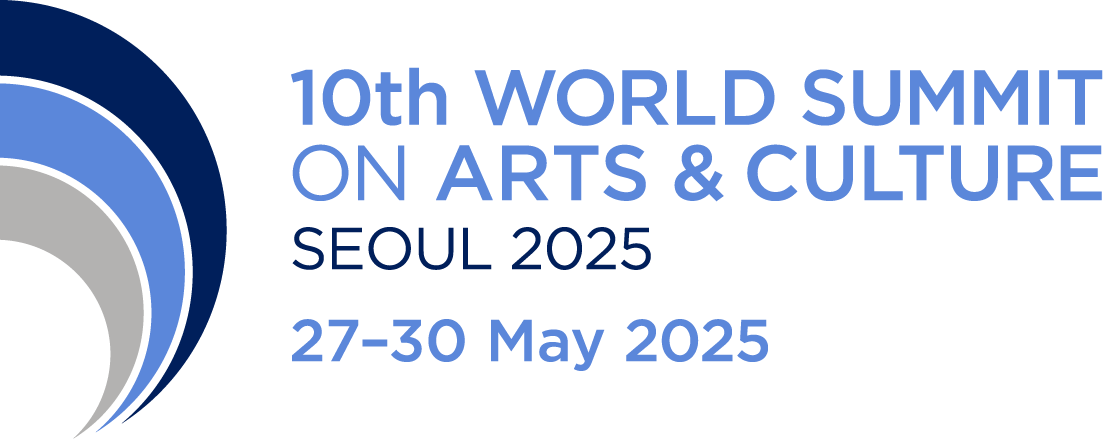Charting the future of arts and culture
In our fragile and uncertain times, we remain in a state of polycrisis that demands we develop capabilities and skills to balance such simultaneous crises; this was a parting reflection at the 9th World Summit on Arts and Culture in Stockholm in May 2023. Constant, unprecedented change continues to be the new normal. However, this also generates opportunities: as the pandemic proved, major and/or global crises can break existing circuits, force moments of critical assessment, redress dominant narratives and create new pathways. In our current context, we can prepare for the future by learning from errors in the past to navigate challenges, maximise opportunities, effect positive change, ensure diversity and openness in our dialogue and co-design, and address systemic issues.
The 10th World Summit on Arts and Culture will take place in Seoul, Republic of Korea in May 2025, and bring together key leaders and decision-makers from around the world – from the arts and cultural ecosystem and beyond – to exchange, debate and harness the knowledge systems we need to futureproof the cultural and creative sectors (CCS) and our roadmap, with a focus on current and projected digital and technological realities. It will help co-create new pathways to advance arts and culture and affirm our collective position as we seek to positively influence the sustainable agenda for the global community, and communities within our local contexts.
The timing of the Summit marks a key milestone in the lead-up to the UNESCO World Conference on Cultural Policies and Sustainable Development – MONDIACULT 2025 to be held in Barcelona in late September in 2025, where we anticipate that governments and policymakers from around the world will reaffirm the critical role of culture in our future, and the need for culture as a standalone goal in the post-2030 agenda for sustainable development. Culture must be at the heart of our future. To prepare, we must consider how best to futureproof the CCS and the road ahead for all those involved in shaping cultural policies. Worldwide, there are diverse digital realities and power dynamics, and stages of technological development coupled with external challenges as we navigate these multiple crises. Knowledge is a critical resource that will be central to how we work together as we chart the future of arts and culture.
The 10th World Summit aims to inspire delegates through lived experience examples, intersections and good practices from diverse voices across all corners of the globe; respond to different perspectives presented based on a dialogue of exchange and mutual learning; and reflect on the impact of diverse knowledge systems, technological advances, innovation and digitalisation on the cultural sectors in transforming, empowering, decolonising and building more sustainable communities. The Summit will provide a diversity of approaches to explore, provoke and seek answers to the questions raised throughout the Summit programme.
The Summit programme will draw on diverse contexts and systems to explore tools for futureproofing, based on three transversal clusters:
knowledge systems and agency;
participatory systems and connectedness; and
digital systems and technology.

